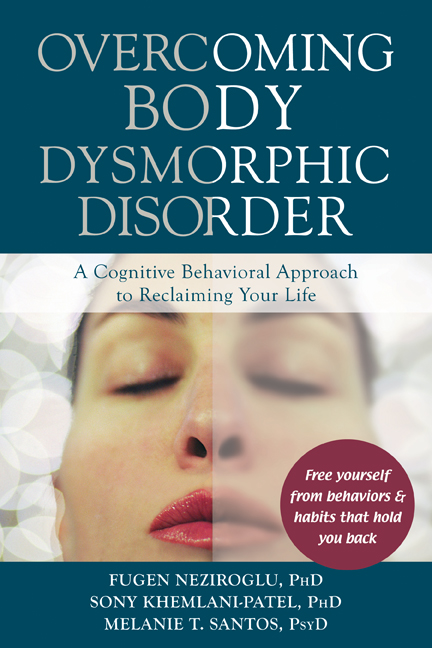By Fugen Neziroglu, PhD
Body dysmorphic disorder (BDD) is a preoccupation with a perceived physical defect, and usually causes extreme distress and impairment in one's functioning. BDD is very similar to obsessive compulsive disorder (OCD) because the individual obsesses and engages in compulsions. As of 2014, it is known to be a disorder related to OCD. It is a serious disorder that affects close to 5 million Americans. Most of these individuals go to dermatologists, or want to seek treatment from cosmetic surgeons. Unfortunately, neither of these specialties bring relief from symptoms. Unless treated, BDD leads 40% of the people to become homebound, 28% to be hospitalized, and nearly 29% to attempt suicide—with some percentage succeeding.
As therapists, we typically see that most clients come into treatment because of a family member. Some clients are resistant to having the family member included in treatment. It is vital to educate the client about how the family member can play a significant role in their life, and in ensuring they are functioning optimally during the treatment process. Considering this, it’s often helpful to look to the family member as a resource in the course of your client’s treatment and healing.
What should your client share with their family?
• It’s normal to have varying levels of closeness with different family members. Assist your client in finding the degree of sharing that works best so their relative can better understand their experience while ensuring the family member is still comfortable with all the client is divulging.
What does your client want from their family?
• Different people will want different things from their family members as they cope with BDD. This could range from tangible items and financial support, to emotional support, such as empathy regarding behaviors that trigger BDD. Coach your client in helping them understand what they need before they discuss their BDD with their family. This will help your patient’s family to understand, and hopefully fulfill those expectations. Still, even with clear expectations, their family may sometimes express confusion. Educate your client that when they're in doubt, just turn to honest and open conversation.
What if your client’s family doesn’t understand?
• In our society, BDD isn’t discussed nearly as much as conditions like depression or anxiety. Therefore, when your client shares their situation with family and friends, it’s possible they might trivialize the matter. If with time and education, family members still don’t learn it’s possible for your client to find solace, their therapist, friends, and even online BDD chat rooms can assist them.
How can your client handle their anger toward their family?
• Your client may feel angry during this process, and this can be a truly detrimental emotion. The first step in dealing with anger is recognizing its source. Once you and your client identify what's making them angry with friends, family, or their spouse, you can begin the process of challenging these thoughts with them. Then, with a level head, they can decide how to discuss possible solutions.
Encouraging your client to have patience as their family works on understanding their BDD can be difficult, but in the end it certainly pays off—as the family can become a shoulder to cry on or a personal cheerleader to encourage your client. The family can be an integral and helpful part of your client’s recovery!
 Fugen Neziroglu, PhD, ABBP, ABPP, is a board-certified cognitive and behavior psychologist and leading researcher in the treatment of anxiety disorders, obsessive-compulsive spectrum disorders, trichotillomania, hoarding, body dysmorphic disorder and hypochondriasis at the Bio Behavioral Institute in Great Neck, NY, where she serves as director. She is also the coauthor of Overcoming Body Dysmorphic Disorder, Overcoming Compulsive Hoarding, When Your Child is Cutting, and has been featured on the TLC show, Hoarders. Her books have been translated into various languages.
Fugen Neziroglu, PhD, ABBP, ABPP, is a board-certified cognitive and behavior psychologist and leading researcher in the treatment of anxiety disorders, obsessive-compulsive spectrum disorders, trichotillomania, hoarding, body dysmorphic disorder and hypochondriasis at the Bio Behavioral Institute in Great Neck, NY, where she serves as director. She is also the coauthor of Overcoming Body Dysmorphic Disorder, Overcoming Compulsive Hoarding, When Your Child is Cutting, and has been featured on the TLC show, Hoarders. Her books have been translated into various languages.

 2024 Peace Playbook: 3 Tactics to Avoid Clashes with Your Partner
2024 Peace Playbook: 3 Tactics to Avoid Clashes with Your Partner